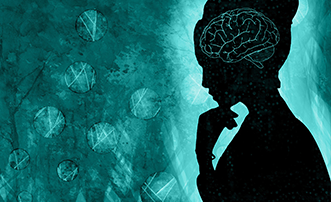Dementia is one of the most challenging diseases to experience and one of the most challenging to be the care partner of. It can be difficult to stay empathetic when the person with dementia seems to be doing things on purpose to frustrate us. Let’s talk about a part of the brain often affected first by most dementias and how it might be the reason you’re struggling with your loved one with dementia.
The prefrontal cortex, the part of the brain right behind your forehead, is responsible for six main functions.
- Being Logical
This is the part of the brain that we use to think through a situation and make logical sense about it. They may see that their wallet is missing. The logical answer is that they moved it but they cannot see that. They often come up with their own logical answer, and often, that means you did something with it. - Controlling Impulses
“Woah! Maybe I shouldn’t say this,” or “Maybe I shouldn’t do that.” This is the part of the brain that controls our impulses, this is our “filter.” This part of the brain keeps us from saying hurtful things, swearing, or physically acting out. This part of the brain helps us to be patient and understand consequences of our actions. - Making Decisions
This part of the brain is where we are able to weigh out our options and make a decision that is best for us or for others. Understanding the pros and cons of the options is very difficult for people with dementia, and they will often say “no” to yes or no questions due to this. - Sequencing
Not being able to initiate a task, complete the steps in the task, end the task, and move on to something else is a symptom commonly seen in people with dementia. We may offer activities, ideas, and opportunities to someone with dementia, but they may never pick them up and start. This may not be because they are not interested, it is most likely due to their inability to initiate the activity. - Self-Awareness
When this part of the brain is damaged, people struggle to see their own deficits. They may feel they are able to do things that they are no longer able to do. They may believe they are managing self-cares or household chores independently and not aware they are getting a lot of help to complete these things. - Seeing Things from Another’s Point of View
Damage to the prefrontal cortex can cause people to be unaware of how you or others are feeling. It can look like a lack of empathy and understanding on their part, but they simply cannot access this part of their brain anymore, or this part of their brain is no longer there.
When we see these symptoms in a person with dementia, we need to understand it as a form of communication. They are telling us they are unable to be logical, control impulses, make decisions, manage tasks, be self-aware, or understand your point of view due to the brain disease.
This can be very challenging for care partners as well as for the person with dementia. For more information about dementia and support for caregivers, contact ADRC at (920) 448-4300.



